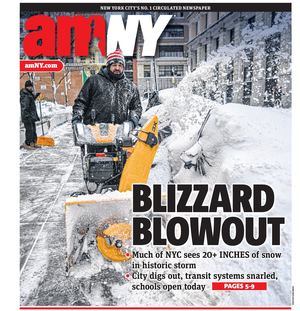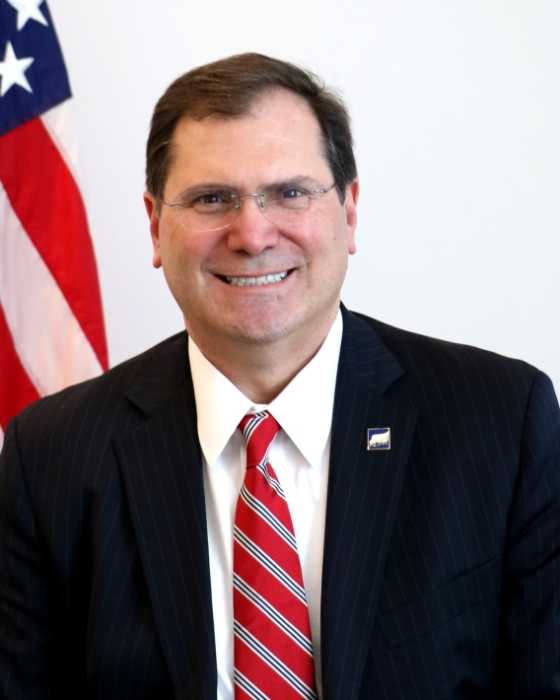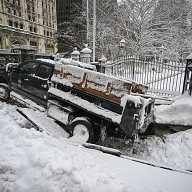The July 4th holiday and the summer vacations it kicks off makes it the perfect time for a refresher in employers’ leave obligations.
PAID COVID
The most timely and significant change is that COVID LEAVE SUNSETS AT THE END OF THIS MONTH.
Since 2020 all employers have been required to provide paid COVID leave on top of all other leave required by law. That included up to two weeks depending upon the business size, and additional time for vaccination. On July 31, 2025, that law expires. As of August 1, employers will no longer be required to provide additional COVID leave.
PAID SICK
In 2014, New York City enacted the Earned Safe and Sick Time Act. The law granted all employees time off for both their own illness as well as to tend to certain personal circumstances including relocating due to domestic violence, and appearing in court.
In 2020, New York State enacted a statewide version that includes all the same reasons for use and requiring employers provide the paid leave in amounts dependent on the size of an employer’s workforce. An employer with 100 or more employees must provide up to 56 hours; 5-99 employees, 40 hours. Employers with fewer than five employees must provide 40 hours — unpaid unless the business had a net income of greater than $1 million in the previous year and then it must be paid. The leave accrues at the rate of one hour for every 30 worked, and employers cannot impose a waiting period. Employees must be allowed to use it as soon as it is earned.
CRIME VICTIMS AND WITNESSES
Apart from the safe time provisions above, crime victims and subpoenaed witnesses are entitled to take unpaid time to testify, without penalty or repercussion.
PAID FAMILY LEAVE (“PFL”)
State law since 2018, PFL provides up to 12 weeks of paid leave for an employee to care for a family member with a serious medical condition, to bond with a newly born or adopted child, or to assist a family member whose loved one is deployed abroad on active military service. The paid leave, however, is not paid by the employer. The law provides for a wage deduction that funds an insurance plan that the employer must maintain. When an employee believes they qualify for the leave, they put in an application to the insurance company. If approved, employees receive 67% of their average weekly wage, up to a cap that is indexed to the New York State Average Weekly Wage. For 2025, the maximum benefit is $1,177.32. This is different from the federal Family Medical Leave Act (FMLA) which grants unpaid but protected time off for many of the same conditions as the state leave, plus an employee’s own medical condition.
LACTATION BREAKS
On top of required daily meal and rest breaks, all people who are breastfeeding are entitled to take up to 30 minutes per break to express breast milk. They are entitled to as many breaks per day as they “reasonably” need, for up to 3 years following the birth of a child.
JURY DUTY
Employers with more than 10 employees must pay employees the daily court rate for the first three days of jury duty. As of June 5, 2025, that amount is $72.00 per day. After that, the state pays the daily stipend but all absence as a result of jury duty is protected.
VOTING
If an employee does not have sufficient time to vote because of their work schedule, they are entitled to two hours of paid time off to vote.
BLOOD AND MARROW DONATION
For employers with more than 20 employees, each one that works more than 20 hours per week is entitled to unpaid leave for blood or marrow donation. For blood donation off-site, the leave is for three hours. For marrow donation, the leave is up to 24 hours, as determined by a doctor.
MILITARY SERVICE AND SPOUSES
Also for employers with more than 20 employees, those working permanent jobs more than 20 hours per week are entitled to unpaid but protected leave for any military duty. Spouses are entitled to up to 10 days of unpaid leave during periods of conflict to visit with spouses who are on leave from active duty.
VOLUNTEER EMERGENCY RESPONDERS
Volunteer firefighters and ambulance drivers are entitled to unpaid leave when called to a declared emergency.
HOLIDAYS
There is no state or federal requirement that employers pay for any holidays at all — even if they are closed.
Penalties for leave law violations range from agency enforcement to lawsuits ordering reinstatement and damages. Employers need to know the latest rules and regulations applicable to their locality. The one rule that applies to all of them, and that every employer needs to understand, is that it is illegal to retaliate against any employee for requesting or using their duly earned leave.
Rachel Demarest Gold has been serving Abrams Fensterman as a partner since 2016 and has worked in the labor and employment, criminal, government litigation, and law and policy practice groups.
Also Read : https://www.amny.com/police-fire/family-urges-nypd-commissioner/







































